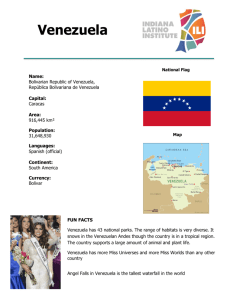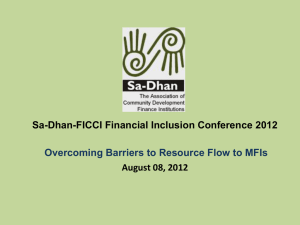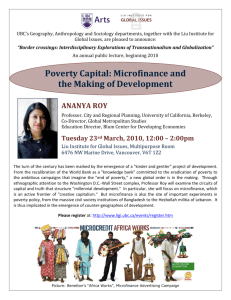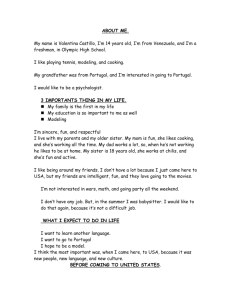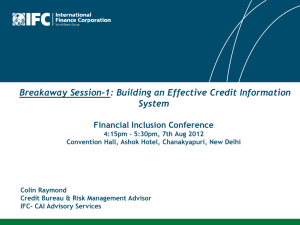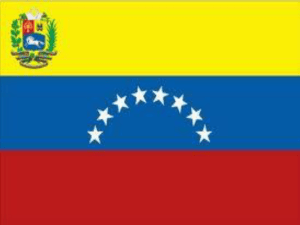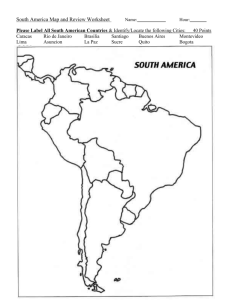Venezuela
advertisement
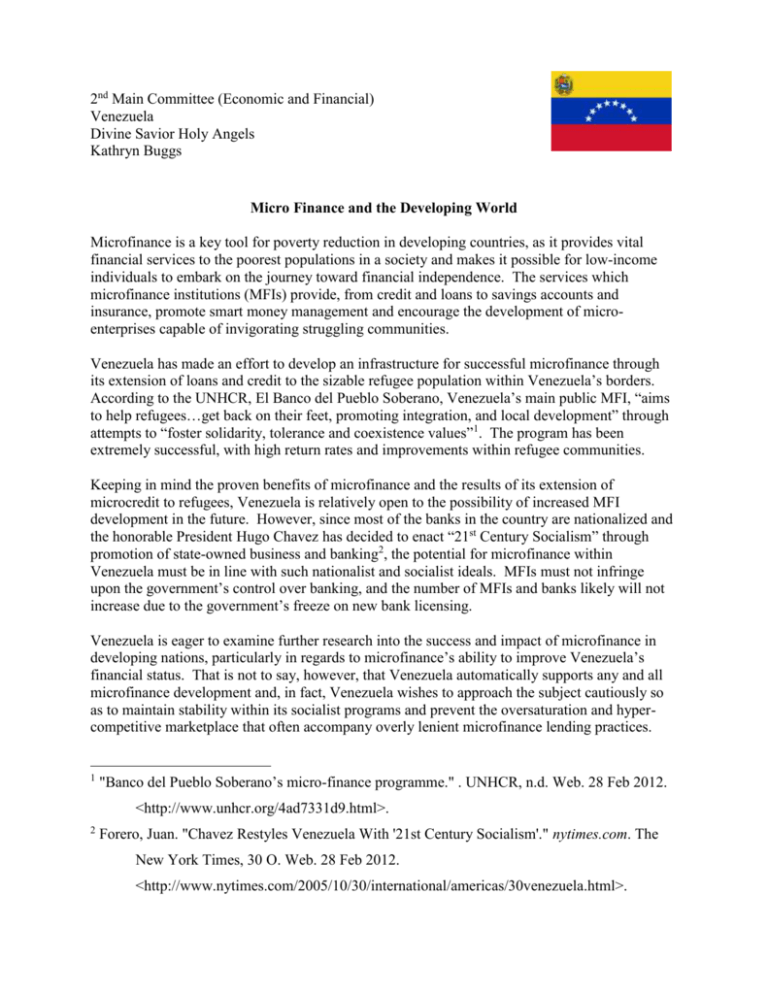
2nd Main Committee (Economic and Financial) Venezuela Divine Savior Holy Angels Kathryn Buggs Micro Finance and the Developing World Microfinance is a key tool for poverty reduction in developing countries, as it provides vital financial services to the poorest populations in a society and makes it possible for low-income individuals to embark on the journey toward financial independence. The services which microfinance institutions (MFIs) provide, from credit and loans to savings accounts and insurance, promote smart money management and encourage the development of microenterprises capable of invigorating struggling communities. Venezuela has made an effort to develop an infrastructure for successful microfinance through its extension of loans and credit to the sizable refugee population within Venezuela’s borders. According to the UNHCR, El Banco del Pueblo Soberano, Venezuela’s main public MFI, “aims to help refugees…get back on their feet, promoting integration, and local development” through attempts to “foster solidarity, tolerance and coexistence values”1. The program has been extremely successful, with high return rates and improvements within refugee communities. Keeping in mind the proven benefits of microfinance and the results of its extension of microcredit to refugees, Venezuela is relatively open to the possibility of increased MFI development in the future. However, since most of the banks in the country are nationalized and the honorable President Hugo Chavez has decided to enact “21st Century Socialism” through promotion of state-owned business and banking2, the potential for microfinance within Venezuela must be in line with such nationalist and socialist ideals. MFIs must not infringe upon the government’s control over banking, and the number of MFIs and banks likely will not increase due to the government’s freeze on new bank licensing. Venezuela is eager to examine further research into the success and impact of microfinance in developing nations, particularly in regards to microfinance’s ability to improve Venezuela’s financial status. That is not to say, however, that Venezuela automatically supports any and all microfinance development and, in fact, Venezuela wishes to approach the subject cautiously so as to maintain stability within its socialist programs and prevent the oversaturation and hypercompetitive marketplace that often accompany overly lenient microfinance lending practices. 1 "Banco del Pueblo Soberano’s micro-finance programme." . UNHCR, n.d. Web. 28 Feb 2012. <http://www.unhcr.org/4ad7331d9.html>. 2 Forero, Juan. "Chavez Restyles Venezuela With '21st Century Socialism'." nytimes.com. The New York Times, 30 O. Web. 28 Feb 2012. <http://www.nytimes.com/2005/10/30/international/americas/30venezuela.html>.
